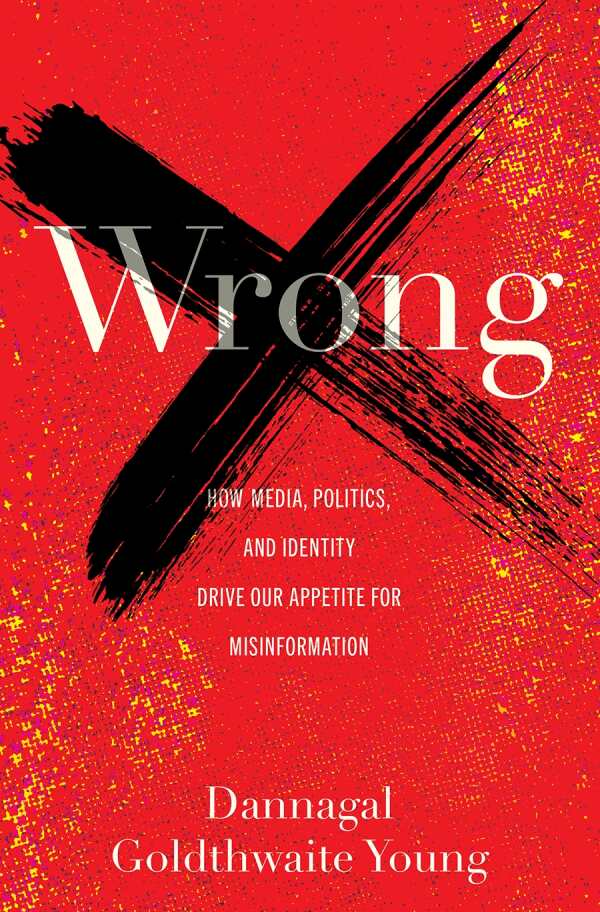Wrong
How Media, Politics, and Identity Drive Our Appetite for Misinformation
Dannagal Goldthwaite Young’s insightful book Wrong investigates the political and philosophical reasons why people rely on information that they know is false.
While living in Philadelphia, Young struggled to make sense of the green, welded-shut post boxes she noticed across the city. Through a combination of previous knowledge and prejudice against the government, Young came up with an explanation. The solution proved to be wrong, but she believed it all the same.
As Young demonstrates in Wrong, the encounter with the postboxes is typical of humans’ need to make sense of the world through comprehension, control, and community. Driven by confirmation bias, the three Cs are shaped to fit a person’s already existing view of the world, regardless of its accuracy.
Wrong is an investigation into the demand side of the supply-and-demand economy of misinformation. The book focuses on everyday people’s propensity for “wrongness,” the belief in and actions taken based on information known to be wrong. When identities dominate people’s thinking, identity-reinforcing information is sought out, making accuracy irrelevant. The book introduces the analytical terms “political mega-identities” and “identity distillation” to lay bare the mechanics behind what drives the two camps in American society apart.
Wrong reveals the mechanics behind the polarization of contemporary American society—and suggests solutions. It breaks down complicated research using easy-to-grasp flow charts and real-world examples from the storming of the Capitol, COVID-19, and the need for scapegoats during life crises. The book is divided into two parts that can be read separately or together. The first part focuses on the psychology and philosophy that drives human beings into drawing conclusions they know to be wrong; the second discusses the political and media ecosystems that feed on this behavior.
Reviewed by
Erika Harlitz Kern
Disclosure: This article is not an endorsement, but a review. The publisher of this book provided free copies of the book to have their book reviewed by a professional reviewer. No fee was paid by the publisher for this review. Foreword Reviews only recommends books that we love. Foreword Magazine, Inc. is disclosing this in accordance with the Federal Trade Commission’s 16 CFR, Part 255.

